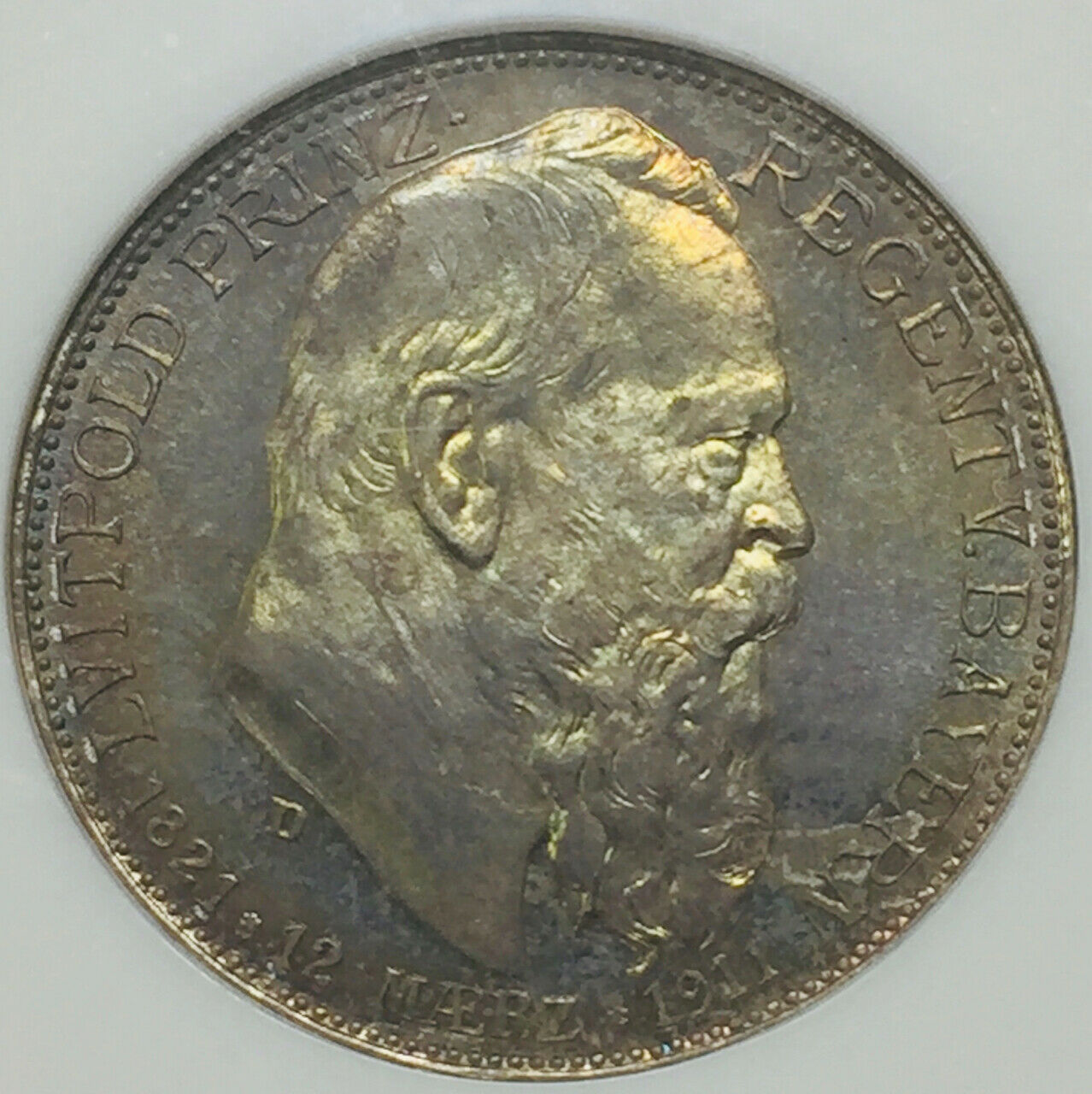-40%
German Empire Bavaria Regent Liutpold 2 Mark Proof dated 1911-D PF65 NGC GEM
$ 155.76
- Description
- Size Guide
Description
Liutpold, Regent of BavariaOn 10 June 1886, Luitpold's nephew King Ludwig II was declared mentally incompetent and Luitpold was named Regent. Luitpold's part is still controversial. Following Ludwig II's mysterious death a few days later, his brother Otto assumed the throne. However, Otto was likewise (or more so) mentally incapable of reigning; he had been under medical supervision since 1883. Accordingly, Luitpold continued to serve as regent. Prince Luitpold was even accused by some people of the murder of his nephew, but soon the decent and affable prince became one of Bavaria's most popular rulers. One of his first actions (on 1 August 1886) was to open several of the palaces of Ludwig II to the public.
Politically, Luitpold remained largely passive. His governments gradually moved away from the previous anti-Catholic Kulturkampf policies. This development culminated in 1912 when the appointment of the Centre Party politician Georg von Hertling as minister president; this also effectively brought about a parliamentarisation of the government, as Hertling's Centre Party was the largest group in the Landtag.
During the regency of Prince-Regent Luitpold relations between Bavarians and Prussians remained cold as Bavarians resented Prussia's strategic dominance over the empire.
Luitpold continued to serve as regent until 1912, when he contracted bronchitis and died in Munich. He is buried in the crypt of the Theatinerkirche in Munich. He was succeeded by his eldest son, Prince Ludwig, who remained as regent for another year. In 1913, the constitution was amended to add a clause stating that if a regency for reasons of incapacity had lasted for at least 10 years with no prospect of the king being able to actively reign, the regent could assume the throne in his own right. Soon after this amendment was promulgated, Ludwig deposed Otto and assumed the throne as Ludwig III.
The Prinzregentenzeit ("prince's regent's time"), as the regency of Luitpold is often called, was due to the political passiveness of Luitpold during an era of the gradual transfer of Bavarian interests behind those of the German empire. In connection with the unhappy end of the preceding rule of King Ludwig II, this break in the Bavarian monarchy looked even stronger. Finally, the constitutional amendment of 1913 brought the determining break in the continuity of the king's rule in the opinion of historians, particularly as this change had been granted by the Landtag as a House of Representatives and meant therefore indirectly the first step toward parliamentary rule in Bavaria. Today the connection of these two developments is regarded as a main cause for the unspectacular end of the Bavarian kingdom without opposition in the course of the November revolution of 1918. However the course of his 26-year regency Luitpold grew to overcome, by modesty, ability and popularity, the initial uneasiness of his subjects. These prince's regent's years were transfigured, finally – above all in the retrospect – to a golden age of Bavaria, even if one mourned the "fairy tale king" Ludwig II furthermore what happens in a folkloric-nostalgic manner till this day.












